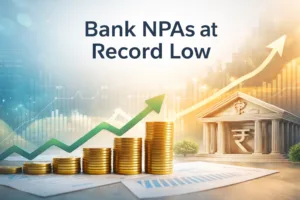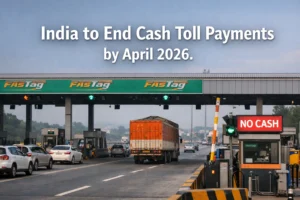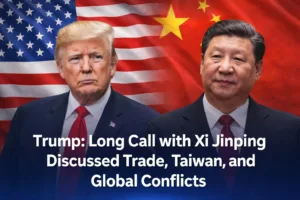HSBC has lowered Tesla’s price target to $138 from $143, explaining that the increased affordability of cars doesn’t always result in higher sales volume.
The analyst’s comments highlight uncertainties surrounding the timing of delivery for Tesla’s pre-revenue opportunities. Beyond concerns about slowing electric vehicle (EV) volume growth, they underscore uncertainties regarding the commercialization timelines for Tesla’s projects such as Dojo, FSD, and Optimus, which contribute significantly to its valuation. The analyst suggests that the timeline for these projects may be longer than what is currently reflected in Tesla’s valuation. Furthermore, CEO Musk’s remarks during the fourth-quarter 2023 call, characterizing Dojo as a “long shot” with “high risk, high payoff” and “low probability of success,” further support this perspective.
Furthermore, the dispute regarding the CEO’s compensation introduces additional uncertainty and prompts questions about governance, especially regarding the potential outcomes if CEO Musk is dissatisfied. First-quarter 2024 deliveries amounted to 387,000 vehicles, marking a 9% year-on-year decrease and a 20% quarter-on-quarter decrease. These figures fell 13% below the consensus compiled by the company. The majority of the shortfall in deliveries, approximately 12%, stemmed from Model 3 and Model Y vehicles.
In order to align with the current 2024 consensus, deliveries must increase by approximately 17% for the remainder of the year. Although the anticipated refresh of the Model Y slated for later this year, as reported by Bloomberg on December 27, 2023, could provide support, conflicting press reports, such as those from Electrek on February 12, 2024, indicate the possibility of a delay.
This poses challenges for the volume forecast. Additionally, first-quarter production, totaling 433,000 units, decreased by 2% year-on-year, although it exceeded deliveries by 47,000 units. Management attributed the production issues to the “updated Model 3” at the Fremont factory and factory shutdowns resulting from shipping diversions caused by the Red Sea conflict and an arson attack at Gigafactory Berlin. However, these factors appear to reflect weaknesses in production rather than subdued demand.
TD Cowen has reduced its price target for Tesla to $160 from $180, maintaining a “Hold” rating.
JPMorgan has revised down its Tesla price target to $115 from $130.
JP Morgan suggests that Tesla’s stock could potentially decrease by over 30% from its current level, and they have adjusted their price target for Tesla downward to $115 from $130. Additionally, JP Morgan highlights that the 60% decline in Tesla shares from their all-time highs might not be sufficient.
Guggenheim has lowered its Tesla price target to $122 from $132.
Guggenheim has reduced Tesla’s price target to $122 from $132 while maintaining a ‘Sell’ rating. The firm suggests that Tesla’s weak Q1 deliveries indicate more than just a temporary issue, stating that the supply chain challenges cited by the company don’t fully account for the sharp decline in deliveries. The analyst comments, “We estimate the majority of delivery downside this quarter was a function of demand, not supply.” They further note that they now anticipate negative volume growth for FY24, highlighting challenging comparisons in the second quarter and sensing a strategic shift towards defending pricing over volumes, which they view as a correct long-term strategy. The decrease in demand has resulted in a notable rise in Tesla’s inventory, potentially impacting its cash position. Guggenheim estimates Tesla’s inventory on hand to be 33 days, a significant increase from approximately 16 days in the last quarter and around 18 days in the fourth quarter of 2023. This increase in inventory is expected to pose a approximately $1.8 billion free cash flow headwind, assuming all other factors remain constant.
Deutsche Bank has reduced Tesla’s price target from $200 to $189, expressing concerns that ongoing worries about volume and earnings might further weaken investor confidence.
Truist Securities has revised Tesla’s price target from $193 to $176 following a 15.4% shortfall in Q1’24 deliveries compared to FactSet consensus, stating that it might not necessarily be the decisive event. Analysts attribute the miss to various factors.
The firm has adjusted downward its delivery, revenue, and EPS forecasts for both CY’24 and CY’25, despite recognizing Tesla as a crucial long-term AI technology supplier.
Despite harboring optimism regarding Tesla’s long-term role as an AI technology supplier, current pricing and demand trends, coupled with underwhelming AI updates, are tempering expectations.
The next potential catalysts are seen as the unveiling and sale of the next-generation vehicle, though these events may not occur in the near term.
Morgan Stanley has reduced Tesla’s price target from $320 to $310 while maintaining its ‘Buy’ coverage. They anticipate that the weaker-than-expected Q1 deliveries indicate the ongoing EV industry shake-out phase, but expect the situation to stabilize by Q2.
The FY’24 delivery forecast for Tesla has been revised downward to 1.75 million units, reflecting a 3.3% year-over-year decrease, with an anticipated $2.3 billion cash burn. Analysts note that adverse developments in the global EV market are significant for Tesla and could have a short-term negative effect on the stock price.
However, investors should take note of ongoing developments in Tesla’s other ventures, particularly those related to the automotive sector, such as the potential for recurring revenue from the Tesla fleet, which is not factored into our $310 target. We anticipate that figures will reach a low point by 2Q results, well in advance of a significant rejuvenation of the model cycle.
Bringing you the latest updates on finance, economies, stocks, bonds, and more. Stay informed with timely insights.






















Be First to Comment